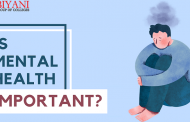DEFINITION:
It is an inflammation of lining of brain and spinal cord by bacteria or virus and less commonly certain drugs.
CLASSIFICATION:
1. Bacterial Meningitis
2. Viral Meningitis
3. Fungal Meningitis
4. Non-infectious Meniningitis
CAUSES:
– Winter and spring season
– Tobacco use
– Upper respiratory infection
– Immune system deficiency
– Oititis media
SIGN AND SYMPTOMS:
Symptoms
Viral meningitis occurs more often than bacterial meningitis, and is milder. It usually occurs in the late summer and early fall. It most often affects children and adults under age 30.
Bacterial meningitis is an emergency. You will need immediate treatment in a hospital. Symptoms usually come on quickly, and may include:
• Fever and chills, especially in newborns and children
• Mental status changes
• Nausea and vomiting
• Sensitivity to light (photophobia)
• Severe headache
• Stiff neck
Other symptoms that can occur with this disease:
• Agitation
• Bulging fontanel’s in babies
• Decreased alertness
• Poor feeding or irritability in children
• Rapid breathing
• Unusual posture, with the head and neck arched backwards
DIAGNOSTIC EVALUATION:
1. Blood culture
2. MRI
3. CT-scan
4. CSF examination
– Cell count
– Glucose level
MEDICAL MANAGEMENT:
1. Antibiotics
Cephalosporin in combination with vancomycin.
2. Anticonvulscent
3. Corticosteroids
NURSING MANAGEMENT:
Neurological status and vital signs assessed regularly.
Taking blood pressure alternately
Monitoring daily body weight , serum alkaline and urine volume specially if syndrome of inappropriate antidiuretics hormone
Prevent complicated associated with immobility such as pressure and bed sore.
Prevention
Certain vaccines can help prevent some types of bacterial meningitis:
• Hemophilic vaccine given to children helps
• Pneumococcal vaccine is given to children and adults
• Meningococcal vaccines are given to children and adults; some communities hold vaccination campaigns after an outbreak of meningococcal meningitis.
Household members and others in close contact with people who have meningococcal meningitis should receive antibiotics to prevent becoming infected.




